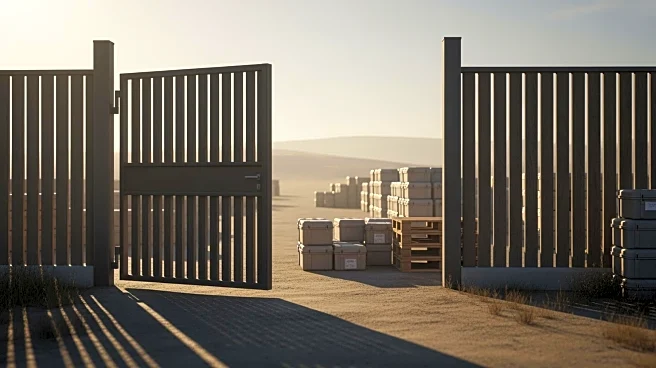What's Happening?
The Zikim Crossing, located north of the Gaza Strip, has been opened to allow aid to enter for the first time since the recent ceasefire. This development is intended to facilitate the delivery of larger
quantities of humanitarian aid to the region. Despite this opening, the United Nations has reported that Israel continues to impose significant restrictions on the entry of aid. UNICEF has specifically noted that it was denied permission to bring syringes necessary for children's vaccination efforts, highlighting ongoing challenges in delivering essential supplies.
Why It's Important?
The opening of the Zikim Crossing is a critical step in addressing the humanitarian needs in Gaza, which have been exacerbated by recent conflicts. The ability to deliver aid is vital for the health and well-being of the population, particularly children who require vaccinations. However, the continued restrictions by Israel pose significant obstacles to effective aid delivery, potentially impacting the recovery and health outcomes in the region. The situation underscores the complex political dynamics and the need for international advocacy to ensure unrestricted humanitarian access.
What's Next?
The international community, including humanitarian organizations, may increase pressure on Israel to ease restrictions and allow for the unhindered delivery of aid to Gaza. Further negotiations and diplomatic efforts are likely to focus on ensuring that essential supplies, such as medical equipment and vaccines, can reach those in need. The situation remains fluid, with potential implications for future ceasefire agreements and the broader peace process in the region.










